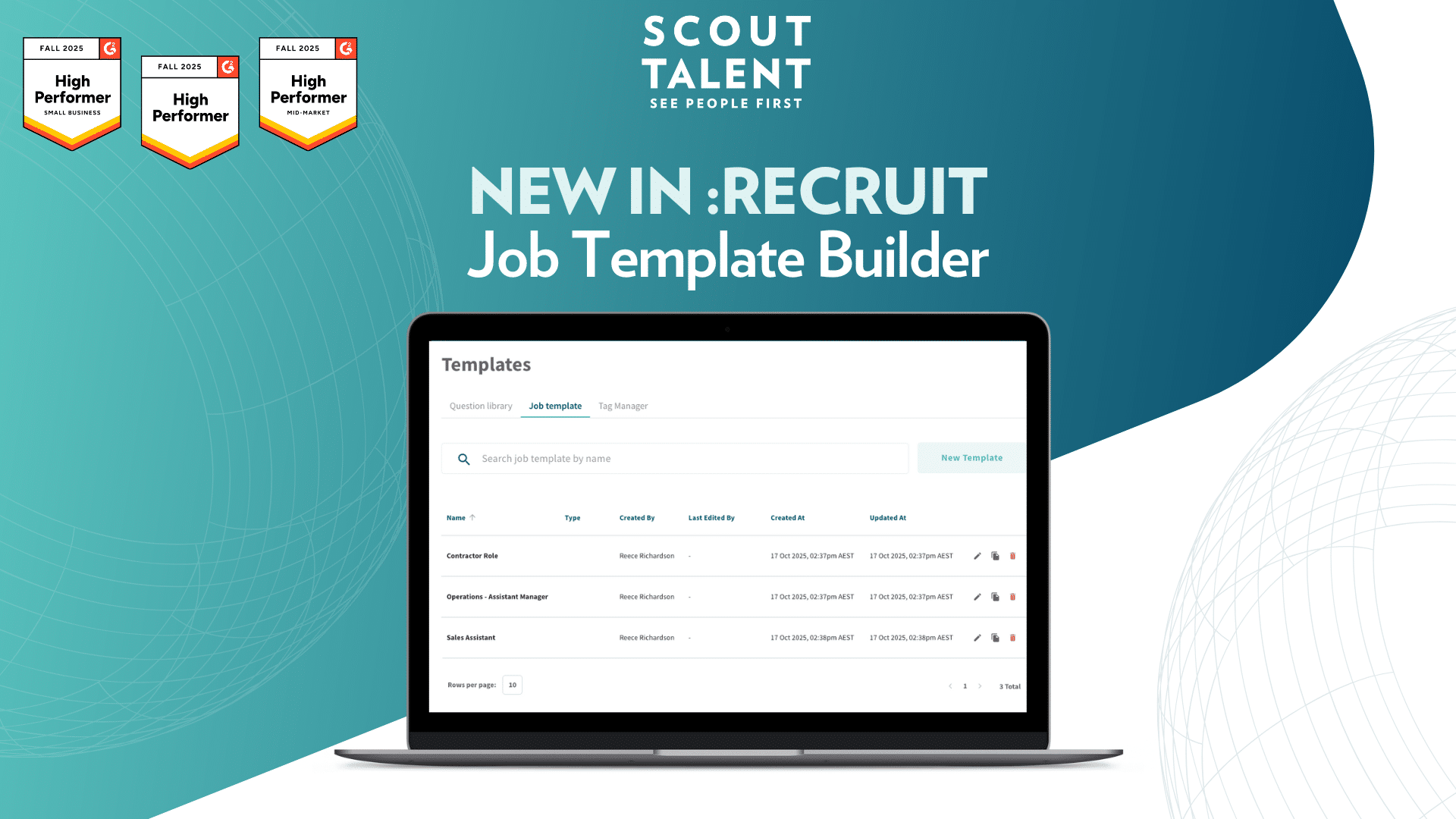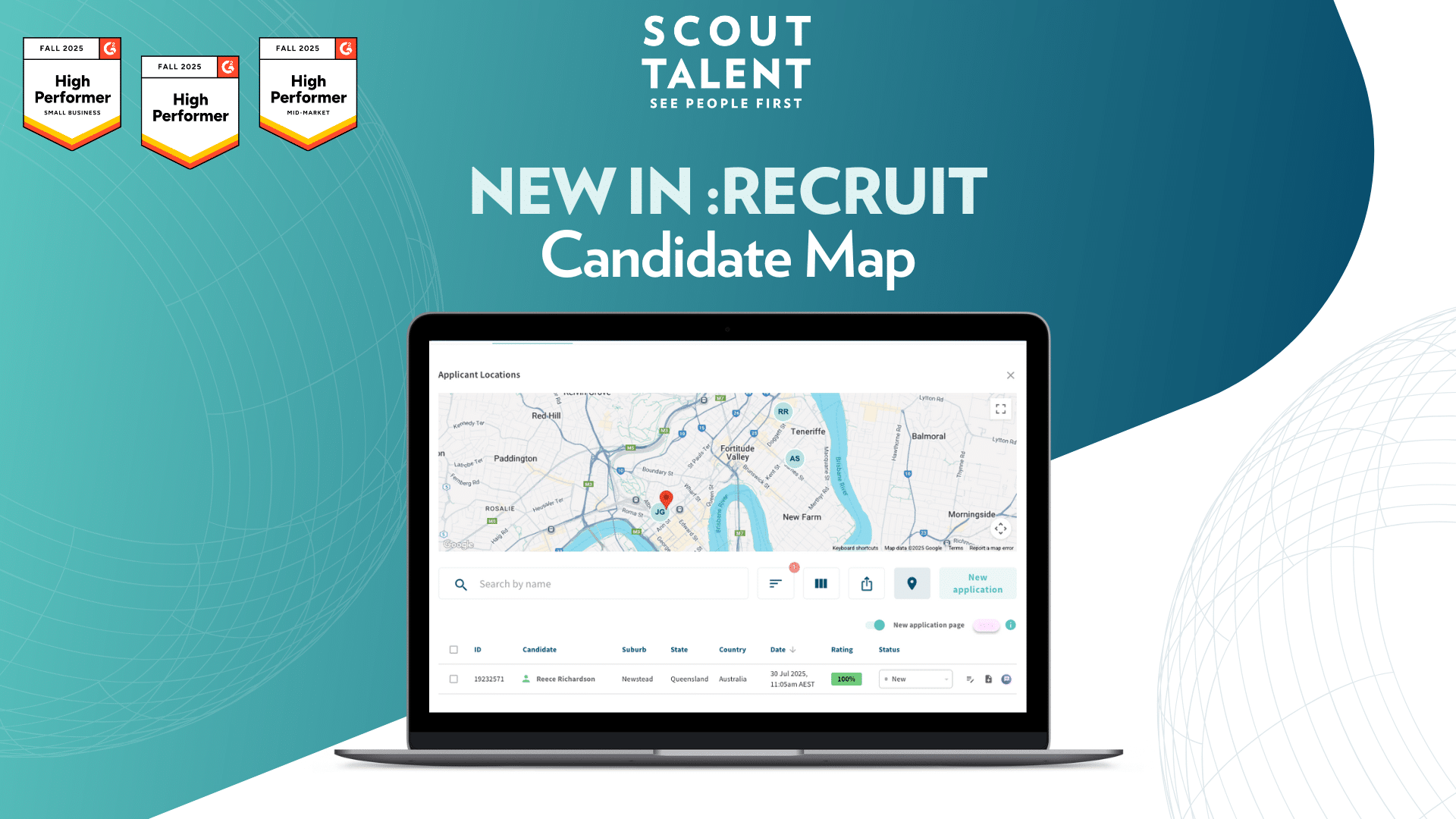As you hopefully know by now, at Scout Talent we are passionate about the world of recruitment. We work with our clients to support as much or as little of their recruitment process as they need us to.
One area that we often find ourselves supporting our clients with is the screening process prior to interviewing. This step is often overlooked by clients and results in time wasted interviewing the wrong people and good candidates falling through the cracks.
As such on today’s episode of the podcast we’re going to talk about the Rating, Ranking, and the Initial Screening of candidates. The benefit of getting this step right is that you ensure you spend the bulk of your time and resources courting the right talent for your organization. It’s invaluable to the overall recruitment process.
Establishing your criteria
Before we get into reviewing candidates it is important to establish what exactly the right sort of candidate for your organization looks like.
Similarly, be mindful of the sort of information you’re asking for from them. There is truly no point in asking for a cover letter if no one is going to read it and in my experience, no one reads cover letters but perhaps you’re one of the rare recruiters that do.
Once you’ve established how you’re going to be measuring your candidates, and what you’re going to measure them on, the process of rating, ranking, and initial screening should kick in no later than 5 days after you’ve posted your first job advertisement. The reason you want to get started on this process quickly is that you don’t want to miss out on good candidates that may be applying for multiple roles.
Similarly, you also want to know quickly if your job description isn’t attracting the right candidates. If that is the case then use what you’re seeing in your candidate pool and adjust your advertising approach accordingly.
Rating your candidates
Assuming you have the right sort of people in front of you the first thing that you’re going to be doing is rating them.
According to the Shortlisters on our team, who are masters at screening candidates, the easiest way to rate candidates is to use two separate reference points to review them.
If you’re one of those rare recruiters that actually reads cover letters then potentially that can be one of your reference points. Most often a combination of resumes and screening questions works best as your reference points.
If you’re using an applicant tracking system you’ll be able to pose screening questions to your candidates when they apply but if you’re not, many job boards offer this feature too though it’s not quite as adaptable on a job board.
When you’re rating candidates look at the answers candidates have given to your screening questions. Check these answers to make sure they’re actually a qualified fit and then review their spelling and grammar.
Assuming everything here is sufficient cross-reference the details you’ve received with their resume. It’s not the end of the world if the two don’t match completely as many candidates use a copy and paste resume but the two sources of information should still be somewhat aligned.
Sorting your candidates
Depending on how you’re reviewing your candidates, be it Applicant Tracking System or some other method, you’ll need to establish how you’re going to sort your candidates. Our internal applicant tracking system allows us to actively rate each screening question that a candidate answers and give their overall application a percentage rating out of 100%.
Whatever method you use to sort your candidates be it percentage rating, statuses, or just even tracking them in excel you will eventually have enough of them reviewed to bring you on to the ranking part of the process. By ordering the profiles that you’ve reviewed and rated from strongest to weakest you should very quickly have a good idea of where you stand.
Hopefully, you’re in the ideal scenario and you’re looking at several strong candidates. Maybe you’re only looking at 1 strong candidate. Or maybe you don’t have anyone who is a particular stand out. Ordering your candidates against the overall group of applications will give you great insight as to what is currently available in the talent marketplace.
Using this information you can either go back to your candidate attraction strategy and adjust it to better target what you’re looking for or alternatively you can proceed with the strongest applications that you’ve got.
First-round screening interviews
Hopefully at this point, you’re ready for some first-round screening interviews.
You can carry these out however suits you best but our recommendation here at Scout would be to carry them out in the form of a 15 to 30-minute video interview and then recording the interview as well so that you can refer back to it at a later date.
This interview is designed to give you a clearer picture of the candidates you’re curious about but it certainly shouldn’t be the only interview your candidates go through. At this point what you really want to do is unpack any areas of concern you might have with the candidate upon reading their screening questions and their resume. You also want to make sure that their salary expectations align with what you’re able to offer.
Important questions to ask will likely vary from organization to organization and role to role but make sure to verify your candidate’s qualifications verbally and to also walk through their relevant experience. If there are any gaps in their resume that you’ve noticed you should absolutely ask about them here as well rather than making assumptions.
Why it is important
A strong rating, ranking, and screening interview will reduce cost and save you time when it comes to overall recruitment processes so it’s really important that your recruiter or hiring manager is confident in their ability to carry out this process. Failure here will cause you to miss out on quality candidates and will also result in you wasting time on the first round and sometimes even second round interviews with candidates that just aren’t a good fit for your organization.
If you’d like to see how Scout Talent can help you to improve your shortlisting processes, please feel free to reach out to us via email at hello@scouttalent.ca or by phone at 1 866 474 3140




